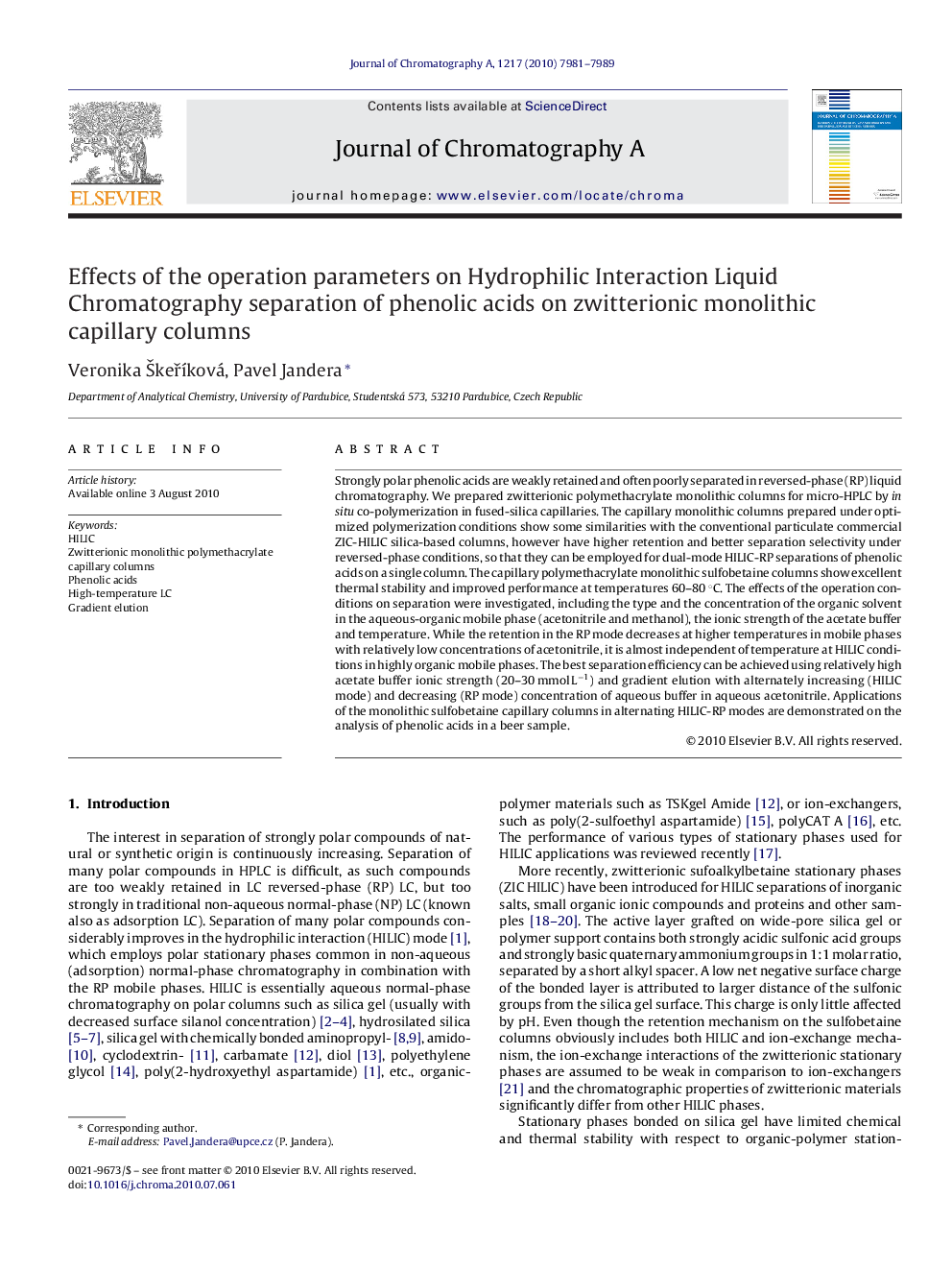| Article ID | Journal | Published Year | Pages | File Type |
|---|---|---|---|---|
| 1204062 | Journal of Chromatography A | 2010 | 9 Pages |
Strongly polar phenolic acids are weakly retained and often poorly separated in reversed-phase (RP) liquid chromatography. We prepared zwitterionic polymethacrylate monolithic columns for micro-HPLC by in situ co-polymerization in fused-silica capillaries. The capillary monolithic columns prepared under optimized polymerization conditions show some similarities with the conventional particulate commercial ZIC-HILIC silica-based columns, however have higher retention and better separation selectivity under reversed-phase conditions, so that they can be employed for dual-mode HILIC-RP separations of phenolic acids on a single column. The capillary polymethacrylate monolithic sulfobetaine columns show excellent thermal stability and improved performance at temperatures 60–80 °C. The effects of the operation conditions on separation were investigated, including the type and the concentration of the organic solvent in the aqueous-organic mobile phase (acetonitrile and methanol), the ionic strength of the acetate buffer and temperature. While the retention in the RP mode decreases at higher temperatures in mobile phases with relatively low concentrations of acetonitrile, it is almost independent of temperature at HILIC conditions in highly organic mobile phases. The best separation efficiency can be achieved using relatively high acetate buffer ionic strength (20–30 mmol L−1) and gradient elution with alternately increasing (HILIC mode) and decreasing (RP mode) concentration of aqueous buffer in aqueous acetonitrile. Applications of the monolithic sulfobetaine capillary columns in alternating HILIC-RP modes are demonstrated on the analysis of phenolic acids in a beer sample.
